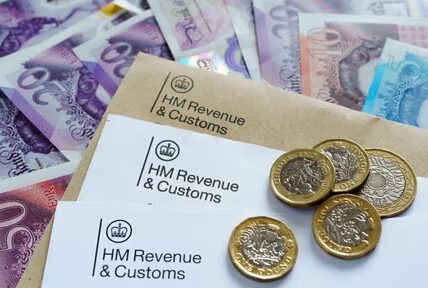TV presenter Kirstie Allsopp has made a brutal comparison as Chancellor Rachel Reeves considers plans to tax rental income.

Kirstie Allsopp has taken aim at Rachel Reeves. (Image: Getty)
Kirstie Allsopp has taken aim at Rachel Reeves’s proposed new plans to tax retail income, which the Government says could raise £2 billion. While criticising the Chancellor’s plans, she made a brutal comparison to a woolly-headed British TV character. The Treasury is reportedly considering a new tax on landlords, which would see National Insurance placed on rental income, ahead of Reeve’s autumn budget.
As it stands, employee national insurance contributions (NICs) on other earnings stand at 8%, but drop to 2% above a £50,270 threshold. This comes as the Labour Party pledges not to raise NICs, VAT or income tax. However, the Government is reportedly seeking ways to raise revenue without crossing these lines. Experts have given warnings over this proposed plan, claiming that the charge would ultimately affect tenants.
Ms Allsopp, while speaking to Times Radio on Wednesday, blasted the plans and made a brutal comparison between Rachel Reeves and Blackadder character Baldrick. She labelled the plans “tenant bashing under the guise of landlord bashing”.
The property show presenter said: ” If 8% national insurance goes on money that a landlord gets in, how is this going to impact tenants? It’s literally like having the economy run by Baldrick.
“She [Rachel Reeves] keeps on coming up with cunning plans and she needs to go and sit in a corner and think about how to save money and improve the economy, not constantly be taking money from people because this will impact tenants.”

Rachel Reeves is reportedly planning a new tax for landlords. (Image: Getty)
Meanwhile, Marc von Grundherr, director at Benham & Reeves, has called the rumoured move “partisan theatre” which would have “serious unintended consequences”. He said: “This move smacks of political point-scoring rather than sound housing policy.
“Applying national insurance to rental income threatens to undermine rental supply by squeezing small and medium-scale landlords, who may pull up stakes or restructure,” he said. “We’re already seeing supply pressures in many areas, pushing costs onto tenants. A policy with such serious unintended consequences deserves more scrutiny and a strategic approach, not partisan theatre.”
Rental income is currently subject to income tax but not national insurance. This means that a landlord earning between £50,000 and £70,000 from property could face an extra £1,000 in tax annually.

